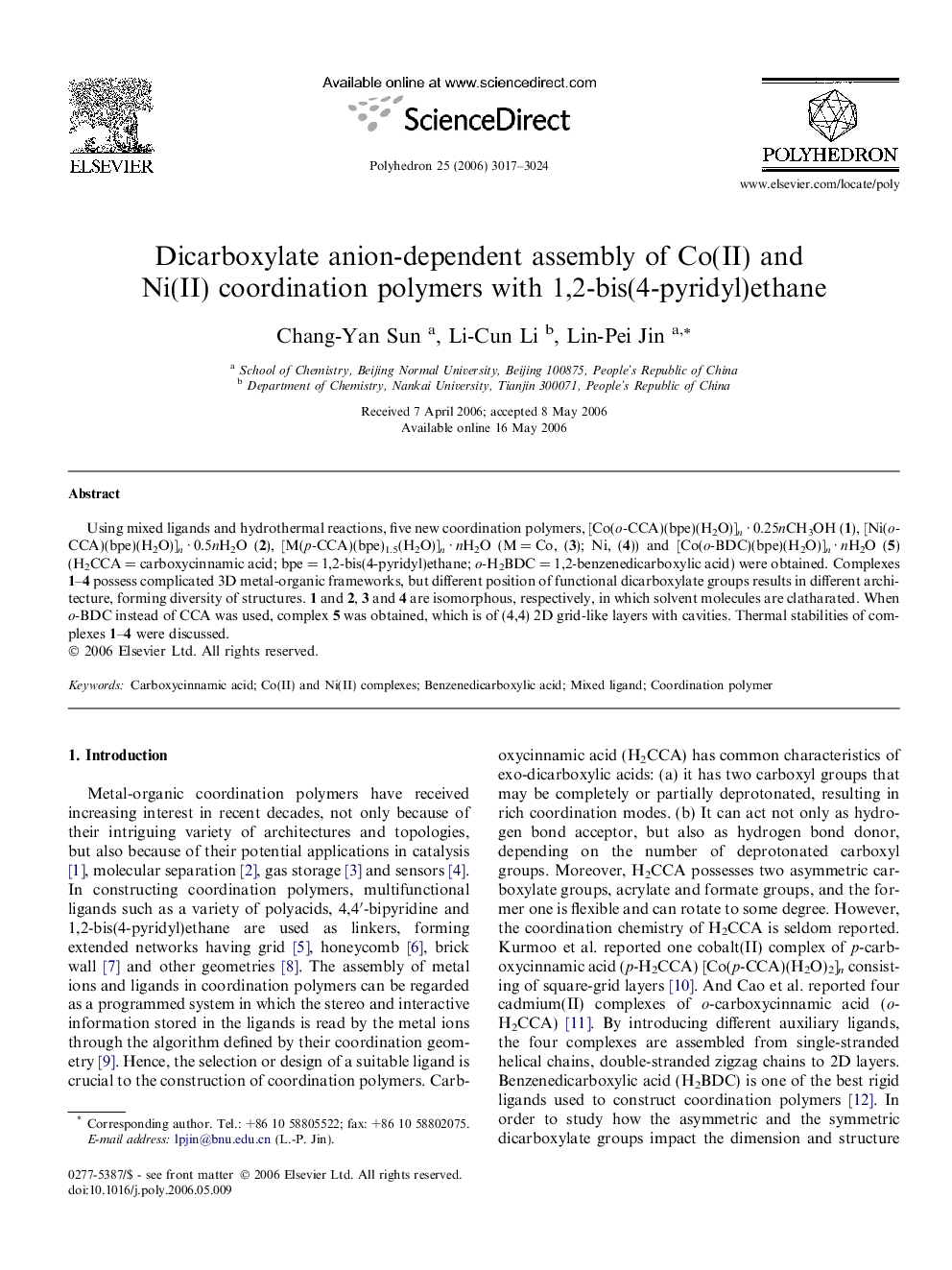| کد مقاله | کد نشریه | سال انتشار | مقاله انگلیسی | نسخه تمام متن |
|---|---|---|---|---|
| 1335649 | 979541 | 2006 | 8 صفحه PDF | دانلود رایگان |

Using mixed ligands and hydrothermal reactions, five new coordination polymers, [Co(o-CCA)(bpe)(H2O)]n · 0.25nCH3OH (1), [Ni(o-CCA)(bpe)(H2O)]n · 0.5nH2O (2), [M(p-CCA)(bpe)1.5(H2O)]n · nH2O (M = Co, (3); Ni, (4)) and [Co(o-BDC)(bpe)(H2O)]n · nH2O (5) (H2CCA = carboxycinnamic acid; bpe = 1,2-bis(4-pyridyl)ethane; o-H2BDC = 1,2-benzenedicarboxylic acid) were obtained. Complexes 1–4 possess complicated 3D metal-organic frameworks, but different position of functional dicarboxylate groups results in different architecture, forming diversity of structures. 1 and 2, 3 and 4 are isomorphous, respectively, in which solvent molecules are clatharated. When o-BDC instead of CCA was used, complex 5 was obtained, which is of (4,4) 2D grid-like layers with cavities. Thermal stabilities of complexes 1–4 were discussed.
Using mixed ligands, five new coordination polymers were obtained. Complexes 1–4 possess different complicated 3D metal-organic frameworks, while complex 5 is of (4,4) 2D grid-like layers. These results show that the position of carboxylate groups greatly affects the structure of the complexes.Figure optionsDownload as PowerPoint slide
Journal: Polyhedron - Volume 25, Issue 15, 3 November 2006, Pages 3017–3024